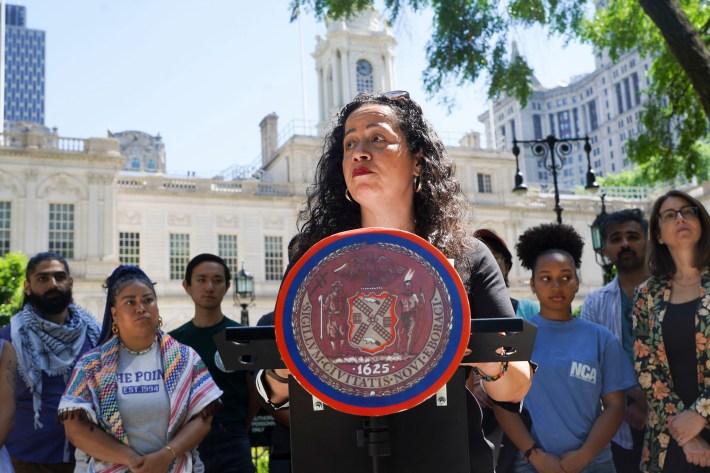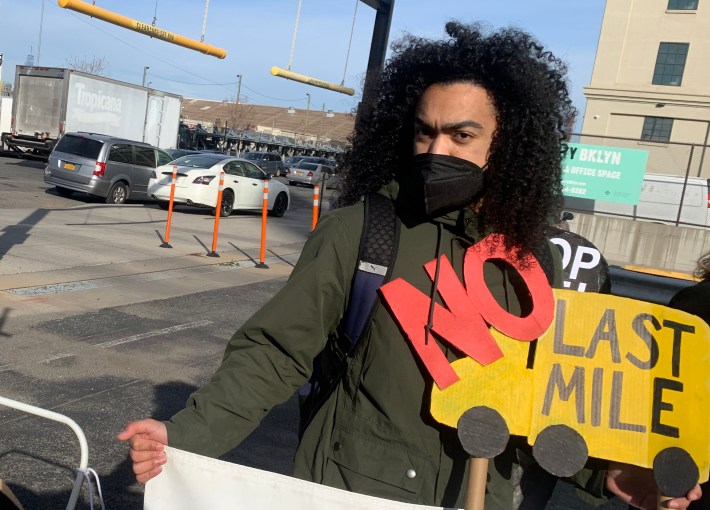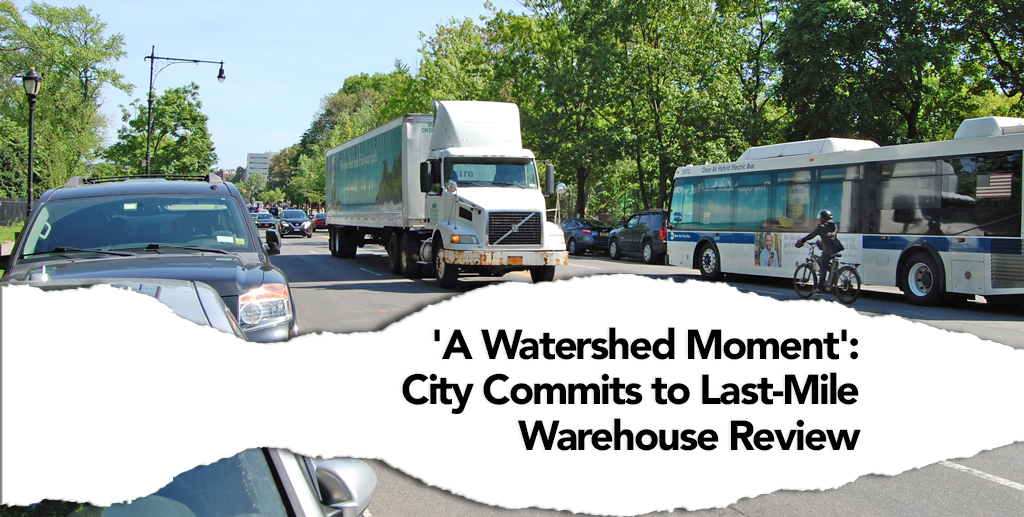Hours before a critical Council vote on his signature zoning initiative, Mayor Adams promised to regulate last-mile delivery warehouses — long a goal of lawmakers in manufacturing zones burdened by truck traffic in a booming e-commerce economy.
The mayor's promise to rein in delivery warehouses was announced as the the Council's Land-Use Committee took up the mayor's City of Yes for Economic Opportunity zoning change on Wednesday and was confirmed in a letter from Deputy Mayor Maria Torres-Springer to Council Speaker Adrienne Adams.
"The city shares the Council's desire to take near-term steps to address the harmful effects of last-mile operations," read the letter, which commits the Adams administration to help pass — "in this calendar year" — legislation to regulate emissions associated with last-mile warehouses as well as change the zoning process so these warehouses can't be built in low-income communities without a review process.
The letter was immediately hailed by activists.
“We are excited that [the city] has heard our calls to regulate 'last-mile' warehouses,” said Kevin Garcia, senior transportation planner at the New York City Environmental Justice Alliance. “Today, we can say that relief is on the way and that communities will have an opportunity to make their voices heard when a new facility is being proposed.”

Torres-Springer's letter specifically committed the city to:
- “advance legislation that would empower the city’s Department of Environmental Preservation to enact an indirect source rule to regulate emissions associated with warehouse operations.” With this type of rule, the city would be able to regulate emissions created by trucks once they leave a warehouse facility.
- “propose and advance a zoning change application that would regulate last mile facilities." In the future last-mile facilities will not be able to be built automatically in areas zoned for industrial manufacturing.
- develop a “holistic industrial strategic plan” (though this is part of the existing requirement under Local Law 172.
The city announcement came just before the Council’s Land-Use Committee approved, in an 8-2 vote, the second installment of the Adams administration's three-part zoning overhaul, this one for Economic Opportunity. Several Council members, including Alexa Avilés of Sunset Park and Red Hook, had sought environmental regulation tools to stop “last mile” delivery warehouses from clustering in low-income communities of color, where the increase in truck traffic causes environmental damage and endanger pedestrians and cyclists.
The Last-Mile Coalition, an umbrella group of advocates affected by the surge in warehouse construction, had been calling for city regulations for two years, more recently linking it to the mayor’s City of Yes economic plan.
At a rally hours before the city confirmed its commitment, Avilés said last-mile regulations would be "a watershed moment for an environmental community like ours."

The City of Yes for Economic Opportunity will not be modified at this point to include these commitments because the zoning plan has already gone through an environmental review. Advocates and lawmakers hope these commitments, in partnership with the zoning overhaul, will save communities who are already impacted by last-mile from facing even more pollution and truck traffic.






